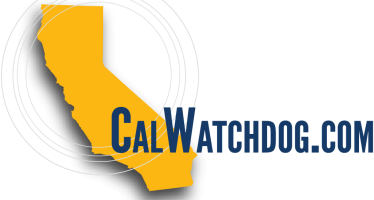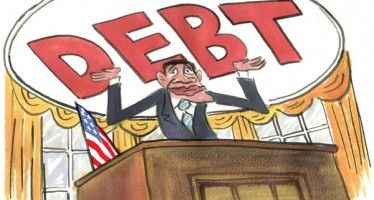Car tax: Another call for boosting it
On Monday, I wrote a research piece on how the car tax cut in 2003 is not to blame for California’s budget deficits. I cited a couple people blaming the cut for the deficits, and saying the old, high car tax should be brought back — which would almost double the tax from 1.15% of the car’s value to 2%.
While doing some research on another piece, I came across yet another article blaming the deficit on the car tax cut. Not surprisingly, it comes from the L.A. Times’ Michael Hiltzik, who never met a tax he didn’t want to double — or triple. During last year’s campaign on the May 19 tax increases on the ballot, Hiltzik’s tax fetish was many times on the John & Ken radio show on KFI640 in Los Angeles. (Radio excerpts here; search for “Hiltzik” and several will come up.)
Hiltzik now writes:
The biggest cause of the state deficit, currently about $20 billion, is Schwarzenegger, who hollowed out the revenue stream by $5 billion to $6 billion a year by cutting the car tax in 2003 without coming up with a substitute.
But as I noted in my piece,
Tom McClintock, now a U.S. congressman, told me that raising the car tax at first hurt the state budget. He pointed to budget figures (Schedule 6, Appendix Page 13 of this .pdf) showing that, from fiscal 2001-02, general fund revenues rose more than $8 billion, to $80.6 billion. By contrast, the next year, fiscal 2003-04, which included the car-tax increase, general fund revenues dropped almost $4 billion, to $76.8 billion.
Then, cutting the car tax back in 2003 actually was “a big economic stimulus for California, particularly in car buying.” When the car tax fell off in 2004-05, revenues rose again, more than $5 billion, to $82.2 billion.
Much of these changes involved not just the particular tax increase or tax cut, but the whole tax climate – whether the statewide trend was for higher or lower tax burdens. McClintock called it the “dynamic impact” of taxes.
Hiltzik, like so many other tax increasers, seems to think that, when you grab people’s money, they just sit there and take it. No. They react. They try to avoid the taxes, by stopping buying cars or other taxed items, or by leaving the state or country. Or, as commonly is the case with cigarettes, they buy smokes on the black market.
— John Seiler
Related Articles
CalWatchdog Morning Read – July 14
Sitting state senator passes Fresno PD releases body-cam footage of shooting of unarmed teen Congressional candidate accused of sexual harrassment
U.S. unfunded liabilities really more than $200 trillion
In the past I’ve written here about the U.S. federal budget not being $17 trillion in the red, but more
Hotel Taxifornia
The Eagles band is starting a tour Tuesday around California and the West Coast. I’ve come up with some new




